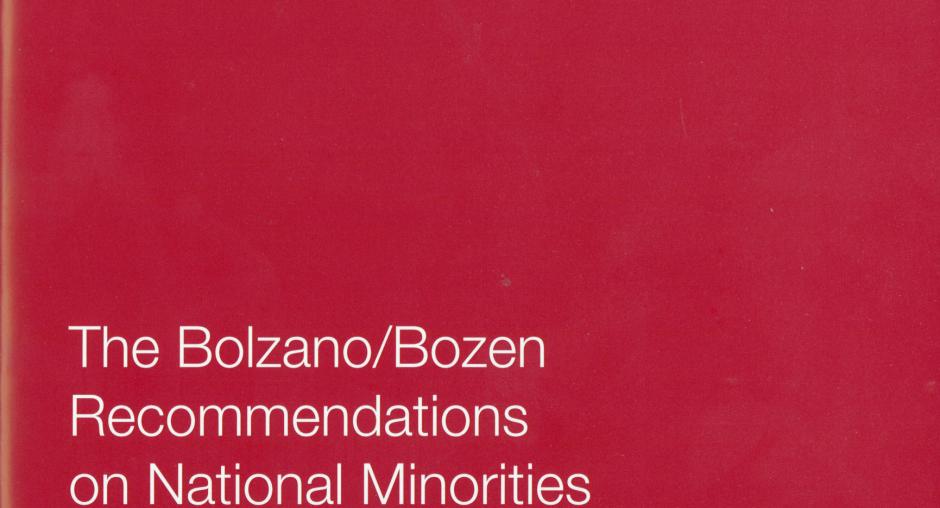Minority communities can serve as bridges between states, says OSCE High Commissioner

BOLZANO/BOZEN, Italy, 2 October 2008 - The OSCE High Commissioner on National Minorities, Knut Vollebaek, launched a set of recommendations on national minorities in inter-State relations today in the capital of Italy's bilingual Bolzano/Bozen province.
"Tensions over national minority issues have defined much of contemporary history. The Bolzano/Bozen Recommendations offer guidance on ways to pursue legitimate interests with regard to national minorities abroad without straining inter-ethnic or bilateral relations," said the High Commissioner.
The Bolzano/Bozen Recommendations on National Minorities in Inter-State Relations build on international law and provide representatives of States, national minorities and international organizations with advice on how to address questions concerning national minorities that arise in the context of inter-State relations in a way that protects and promotes the rights of persons belonging to national minorities, prevents conflict, maintains inter-ethnic harmony and strengthens relations between States.
In particular, the document emphasizes that, under international law, kin-States are not allowed to intervene unilaterally or to exercise jurisdiction over citizens of another State without that State's consent, except in limited areas such as education.
"National minorities in inter-State relations are not by definition a source of conflict. On the contrary, minority communities that span State frontiers often serve as a bridge between States. They contribute to prosperity and friendly relations, and foster a culture of pluralism and tolerance, particularly in the border regions," said Vollebaek.
The High Commissioner on National Minorities, created in 1992, is a unique OSCE institution with a mandate to identify and seek early resolution of ethnic tensions that might endanger peace, stability or friendly relations between OSCE participating States.
